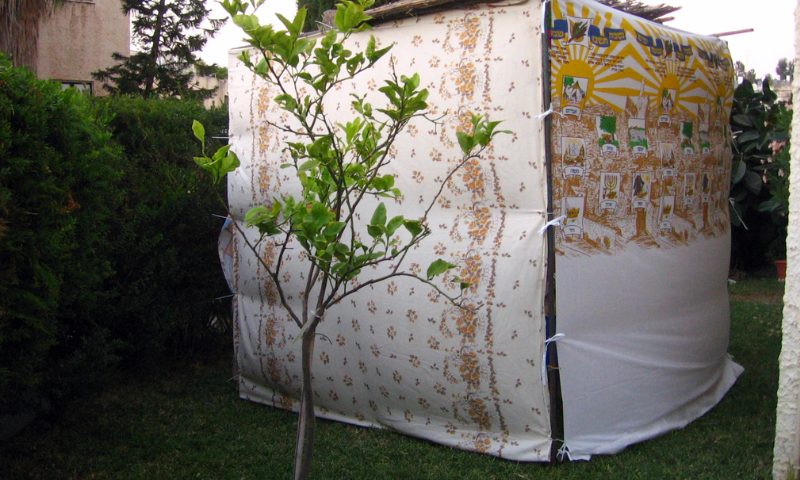Jeremy Rosen
Algemeiner, Sept. 23, 2021
“ Our rituals … interlink social morality and responsibility with daily rituals, so that we are constantly reminded of our values and goals.”
The ancient festival of Sukkot has numerous elements to it. First is the Sukkah. We value our homes and the security of our little palaces, yet during Sukkot, we set up temporary accommodation in which we are expected to eat, sleep, and live for a week just as the weather in the Northern Hemisphere begins to turn cold and wet.
This is because some three and a half thousand years ago, our forefathers lived in the Sinai Desert, and used temporary huts for shade according to one version of our history. In another version, the Sukkah symbolizes the protection God extended over us then and continues to do so now. It is an example of the dichotomy between religion as a functional system as well as a spiritual one.
The Sukkah started life as a simple watchman’s outpost in the fields during harvest time, to guard the crops against humans and animals. What was once a rickety shack or hut thrown together with a canopy of branches and leaves, has now been transformed by affluence into a luxurious prefabricated enclosure, often with electronically operated retractable roofs that respond to a drop of rain. And as the structures have grown sturdier, so too has the plethora of detailed laws and refinements to deal with them. …Source


